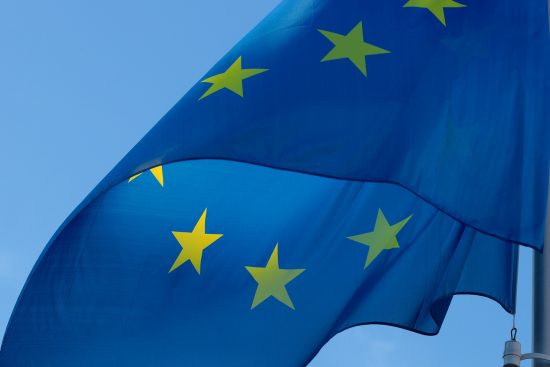On Thursday 23rd of May, people in the UK will place their votes in the European Parliament elections, but some may ask why we are taking part if we voted to leave the European Union (EU) and some may ask, well, what’s it all about anyway? Here we try and explain what it’s all about.
As an EU national, you have the right to vote in this election. Even if you think it’s pointless as we may be out of Europe in 6 months, you can align yourself with the party that represents your stance on Brexit and tell the politicians how you feel and think. Voting was a privilege of the rich and entitled at one stage; people fought hard to earn us this right and I, for one, don’t want to waste it!
What is the European Parliament?
The European Parliament oversees making laws and approving budgets and also has a role in the EU’s relations with other countries, including those wishing to join the EU.
What does the European Parliament do?
The EU has three areas, the “EU Community”, other countries, and police and courts. The EU Council covers other countries and police and court, but in the Community (which is the largest area) it can change or stop any law. But the Council also must agree.
Parliament can change a law but it can’t start a new one (it has to ask the European Commission). The European Parliament makes sure that the Commission does its job properly (if it doesn’t, Parliament can make them all leave their jobs or not allow them to spend the EU budget).
The European Parliament Elections
The elections for the European Parliament take place every 5 years. There are 751 Members of the European Parliament, called MEPs for short, and 73 of these represent the UK (they are elected in Great Britain and Northern Ireland). The other 678 MEPs are from other EU member states and are also elected, the same as here. Its members represent the interests of different countries and different regions within the EU.
The last election
In the last European Parliament elections, UKIP won the most seats out of the 73 with 24 seats. Labour came second with 20 and the Tory’s were close behind with 19. The Green Party won three seats, the SNP won two and Lib Dems, Plaid Cymru, Sinn Fein, DUP and UUP all won one seat each.
The UK has 12 electoral regions with between 3 and 10 MEPs per region. Wales has 4 MEPs: Derek Vaughan (Labour Party) responsible for Group of the Progressive Alliance of Socialists and Democrats in the European Parliament, Nathan Gill (Europe of Freedom and Direct Democracy group), Dr Kay Swinburne (Conservative Party) European Conservatives and Reformists Group and Jill Evans (Plaid Cymru) Group of the Greens/European Free Alliance.
Our MEPs are tasked with listening to people’s local and national concerns and can question and lobby the Commission and the Council of Ministers on our behalf.
Why should I vote in this election?
Here in the UK, the results of this European Parliament Election will be seen as a representation for how the country feels about Brexit and could prove to be a predictor of results in any forthcoming general election. Not sure how this helps us on the ground, but it will sure give the main parties food for thought. If you want to make your feelings on Brexit heard, vote in this election!
Why are we taking part if we voted to leave?
The government hasn’t been able to secure the votes to agree a withdrawal agreement and the EU has agreed a six month delay to allow the UK time to sort itself out, with a new Brexit date set for October 31 2019. This means the UK must now participate in the EU parliament vote.
This means that UK MEPs may only be in office a few months, but because we are still part of the EU on May 23rd, we still must participate in the elections.
If the UK leaves the EU it will have to be reconstituted and will become a 705-seat Parliament, with 27 UK seats re-allocated to other EU nations in order to balance Parliament.
Who can I vote for in this election?
Wales currently has four seats (one Labour, one elected as Ukip, one Conservative and one Plaid Cymru).
Here is the list of who you can vote for in the election this May (in alphabetical order) – I will follow up with an article based on the manifestos of each party:
Brexit Party
Nathan Gill
James Freeman Wells
Gethin James
Julie Anne Price
Change UK
Jon Owen Jones
June Davies
Matthew Paul
Sally Stephenson
Conservatives
Dan Boucher
Craig Lawton
Fay Jones
Tomos Davies
Greens
Anthony Slaughter
Ian Chandler
Ceri Davies
Duncan Rees
Labour
Jackie Jones
Matthew James Dorrance
Mary Wimburyscotland
Mark Jeffrey Denley Whitcutt
Liberal Democrats
Sam Bennett
Donna Lalek
Alistair Cameron
Andrew Parkhurst
Plaid Cymru
Carmen Ria Smith
Ioan Rhys Bellin
Jill Evans
Patrick McGuinness
Ukip
Kris Hicks
Keith Edwards
Tom Harrison
Robert McNeil Wilson
To reiterate: as an EU national, you have the right to vote in this election. Even if you think it’s pointless as we may be out of Europe in 6 months, you can align yourself with the party that represents your stance on Brexit and tell the politicians how you feel and think. Voting was a privilege of the rich and entitled at one stage; people fought hard to earn us this right and I, for one, don’t want to waste it!
Find out more:
There is a website dedicated to the UK representation in the European parliament: http://www.europarl.europa.eu/unitedkingdom/en/european-elections.html
You can find information about the UK MEPs here: http://www.europarl.europa.eu/unitedkingdom/preview/en/european-elections/uk_meps.html



